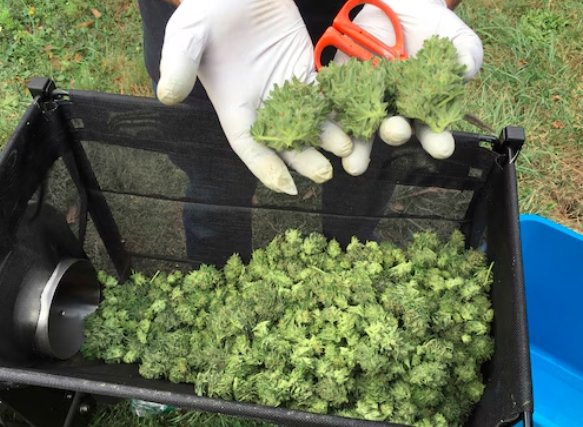Oregon’s Measure 119, also known as the United for Cannabis Workers Act, is on track to pass, bringing significant changes to the state’s cannabis industry. The measure, which appeared to win early support on election night, promises to provide cannabis workers with a clearer and easier route to unionization, something that has long been a challenge in the growing sector.
The measure’s passing could reshape the labor landscape for cannabis businesses, including retail stores and processing plants, by requiring employers to agree to remain neutral if their employees choose to unionize.
The Key Provisions of Measure 119
At its core, Measure 119 aims to create a more accessible and fair pathway for cannabis workers who want to join labor unions. Here’s a breakdown of the measure’s most important provisions:
- Labor Peace Agreement: The measure mandates that cannabis employers enter into a “labor peace agreement” with labor unions in order to receive a license from the Oregon Liquor and Cannabis Commission (OLCC). This means that employers must agree to stay neutral if their workers initiate efforts to unionize.
- Neutrality During Unionization Efforts: If employees at a cannabis business decide they want to unionize, employers must not interfere with their efforts. This will give workers a stronger position when negotiating for better wages, benefits, and working conditions, without fear of retaliation or opposition from their employer.
- Impact on Cannabis Business Licensing: Only businesses that sign this agreement will be eligible to receive or renew their cannabis licenses in Oregon. This makes the measure a key regulation that could influence how businesses operate in the state.

A Major Victory for Cannabis Workers
The United Food and Commercial Workers (UFCW) Local 555, Oregon’s largest private sector labor union, was instrumental in pushing this measure onto the ballot. Several other groups, including the Oregon Center for Public Policy and Pineros y Campesinos Unidos del Noroeste (PCUN), supported the initiative, which has generated significant attention for its potential to improve the working conditions of cannabis industry employees.
What This Means for Cannabis Workers
- Union Rights: Measure 119 makes it easier for cannabis workers to form unions without fear of retaliation from employers. This is a major shift for an industry that has faced challenges when it comes to labor organizing.
- Better Working Conditions: With unions having more power to negotiate on behalf of workers, cannabis employees may see improvements in wages, benefits, and overall working conditions, as unionized workers often gain better protections and support.
- Statewide Support: The measure’s approval demonstrates a growing shift in Oregon’s labor landscape, where unions are becoming more influential in advocating for the rights of workers in emerging industries like cannabis.
Opposition to the Measure
While Measure 119 has garnered support from unions and some progressive groups, it has also faced opposition, particularly from those concerned about the economic impact on Oregon’s cannabis industry.
- Taxpayers Association of Oregon: This group voiced concerns that the measure would exacerbate financial struggles in the state’s legal cannabis market. They argued that increased labor costs could hurt Oregon’s legal cannabis shops, which already face high taxes and strict regulations, making it harder for them to compete with illegal marijuana producers.
- Oregon Business and Industry (OBI): This organization opposed a similar bill during the 2023 legislative session, citing concerns about potential constitutional issues and the surrender of rights protected by federal law. While OBI did not publicly oppose Measure 119, it indicated that it might engage with its members to address concerns in the future.
Concerns About Industry Strain
- Rising Costs: Opponents of the measure worry that requiring businesses to sign labor peace agreements could lead to increased labor costs, which might further strain an already fragile industry.
- Illegal Market Competition: Some fear that the legal cannabis industry will struggle even more against the black market, where labor costs are much lower and products are sold without the same taxes and regulations.
Despite the pushback, the fact that OBI did not actively oppose the measure in its final form suggests that there may be a broader acceptance of labor peace agreements in the state’s cannabis industry.
The Future of Cannabis Unionization in Oregon
As Measure 119 moves toward final approval, the landscape of cannabis labor rights in Oregon is set for significant change. Workers in the state’s cannabis industry will likely have more leverage in negotiations with their employers, thanks to the neutrality clause required by the new law. This could set a precedent for other states looking to improve workers’ rights in the rapidly growing cannabis sector.



